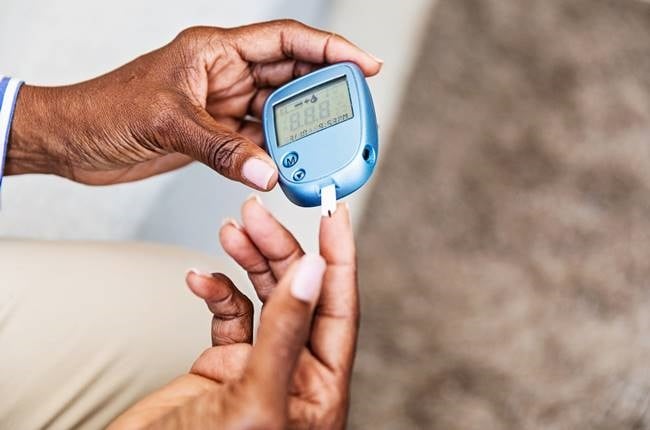
- Managing diabetes may be especially challenging during the coronavirus pandemic
- This is because certain restrictions, such as access to healthcare services, have limited access to healthcare
- To combat possible devastating consequences, governments must take quick action
Maintaining adequate control of diabetes has become increasingly difficult in the time of the Covid-19 pandemic.
For those living with diabetes, ensuring good control of their disease is key to maintaining their immunity and fighting infections. But, as lockdowns around the world have led to strict restrictions, those with chronic health conditions may be struggling to access the necessary care, advice, and treatment.
According to Professor Andrew Boulton, President of the International Diabetes Federation (IDF), some of these restrictions, such as temporarily closing or limiting access to healthcare facilities and services, have disrupted the management of health conditions.
Covid-19, lockdown, and the battle against other diseases
Recent stats from the IDF reveal that around 463 million people – 10% of the global adult population – live with diabetes. Further stats by the organisation also show that around four million South African adults have diabetes.
Considering diabetes is a leading cause of several life-threatening or debilitating complications, including blindness, heart attack, and stroke, the IDF is stressing the need for three major concerns to be taken seriously during the Covid-19 crisis: vulnerability, access to care, and physical and mental well-being.
Diabetes and Covid-19
Those living with chronic conditions, such as diabetes, are particularly vulnerable to severe Covid-19, if infected. A recent French study found that one in 10 older patients with diabetes died within the first week of hospitalisation for Covid-19, HealthDay recently reported.
Last month, health minister Zweli Mkhize expressed the same sentiment after referencing data from patients who were hospitalised. Mkhize added that comorbidities exacerbate the symptoms, and cause a more negative outcome during the Covid-19 pandemic. In his report, he made particular mention of diabetes, hypertension and cardiac disease, notes News24.
“When people with diabetes develop a viral infection, it can be harder to treat due to fluctuations in blood glucose levels. Unfortunately, the coronavirus crisis has led to some healthcare systems having to suspend routine clinic appointments for those with underlying health conditions – including people with diabetes,” said Boulton.
Restrictions disrupting critical services
Lockdown was implemented in South Africa in March this year. Since then, the restrictions put in place to reduce the spread of the virus have also had adverse effects on certain services for non-communicable diseases (NCDs), says Boulton. These include:
- Temporarily closing or limiting access to healthcare facilities and services
- Reallocating healthcare resources and interrupting screening programmes
- Disrupting the delivery of care for the treatment and prevention of NCDs
The World Health Organization (WHO) conducted an assessment on the last point, and the news release shows that service disruptions are widespread in many countries around the world.
Boulton explained: “People with type 1 diabetes, for example, require insulin to survive. Disruption to medical supplies and care resulting from the pandemic can make it more difficult for people with diabetes to manage their condition and can increase the chances of diabetes complications in the long term if not addressed.”
Boulton added that governments must, therefore, take the necessary steps to ensure that those with diabetes and other NCDs are provided with uninterrupted access to the care and treatment they require.
Diabetics fearful of leaving their home
Dealing with uncertainty during the pandemic has increased the stress of many people exponentially, and those who require, but have restricted access to healthcare, are bound to experience increased anxiety, says Boulton.
“We have received reports of people with diabetes avoiding healthcare facilities for fear of contracting Covid-19. For example, in the UK, most people who have cancelled appointments have diabetes, cardiovascular problems or respiratory issues. As a result, there is a concern that, down the line, many countries may see a spike in diabetes complications.”
Boulton explained that, according to the IDF’s member associations, many diabetics fear contracting the virus if they leave their homes, and, therefore, feel safer avoiding their appointments and staying home.
What can be done
Governments must acknowledge the risk of those with chronic illness, such as diabetes, who are vulnerable to Covid-19. Boulton suggests that measures put in place to reduce potential exposure to the virus should be given high importance in those cases.
“At the same time, people with diabetes need to be able to manage a complicated condition. Access to care and supplies must be maintained to protect them from serious complications,” says Boulton.
“People living with diabetes are advised to seek urgent medical attention if they feel unwell and are suffering from any coronavirus symptoms, such as a continuous cough and a fever.”
If you’re diabetic, the IDF is offering advice about the precautions you should take during the pandemic. Information, including guidance on how to best maintain physical and mental health, can be found here.
READ | Coronavirus in SA: All the confirmed cases
READ | What people with type 1 diabetes need to know about Covid-19
Image credit: Matt Chesin on Unsplash




 Publications
Publications
 Partners
Partners











